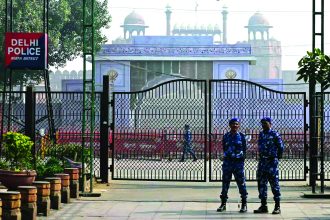PTI | New Delhi
Surendra Koli, the only convict in the sensational 2006 Nithari mass killings, is now a free man as the Supreme Court on Tuesday acquitted him of charges in the last such case and ordered his forthwith release if not required in any other matter.
This was the 13th case in the Nithari killings in which Koli was acquitted. He was already acquitted in the 12 other related cases.
The Nithari killings had come to light with the discovery of the skeletal remains of eight children from a drain behind businessman Moninder Singh Pandher’s house at Nithari in Noida on December 29, 2006. Koli was the domestic help at Pandher’s house at that time.
Allowing Koli’s curative petition challenging his conviction in the case related to the alleged rape and murder of a 15-year-old girl in Nithari, the apex court said criminal law does not permit conviction on conjecture or on a hunch.
A curative petition is the last legal recourse available to a party after exhausting other remedies, including a review petition.
A bench comprising Chief Justice B R Gavai and Justices Surya Kant and Vikram Nath said the offences in Nithari were heinous and the suffering of the families was beyond measure.
“It is a matter of deep regret that despite prolonged investigation, the identity of the actual perpetrator has not been established in a manner that meets the legal standards,” the bench said.
It said that suspicion, however grave, cannot replace proof beyond a reasonable doubt, and the courts cannot prefer expediency over legality.
“The presumption of innocence endures until guilt is proved through admissible and reliable evidence; and when proof fails, the only lawful outcome is to set aside the conviction even in a case involving horrific crimes,” the bench said.
The top court said it must remark on the abiding faith in the capacity of police and investigative agencies of the country. “When investigations are timely, professional and constitutionally compliant, even the most difficult mysteries can be solved and many crimes can be prevented by early intervention,” it said.
The bench said it was “genuinely unfortunate” that in the case, negligence and delay corroded the fact-finding process and foreclosed avenues that might have identified the true offender.
“The scene was not secured before excavation began, the alleged disclosure was not contemporaneously recorded, the remand papers carried contradictory versions, and the petitioner was kept in prolonged police custody without a timely, court-directed medical examination,” it said.
The bench noted that crucial scientific opportunities were lost when post-mortem materials and other forensic outputs were not promptly and properly brought on record and when searches of the house yielded no incriminating traces that could be forensically anchored to the alleged events.




